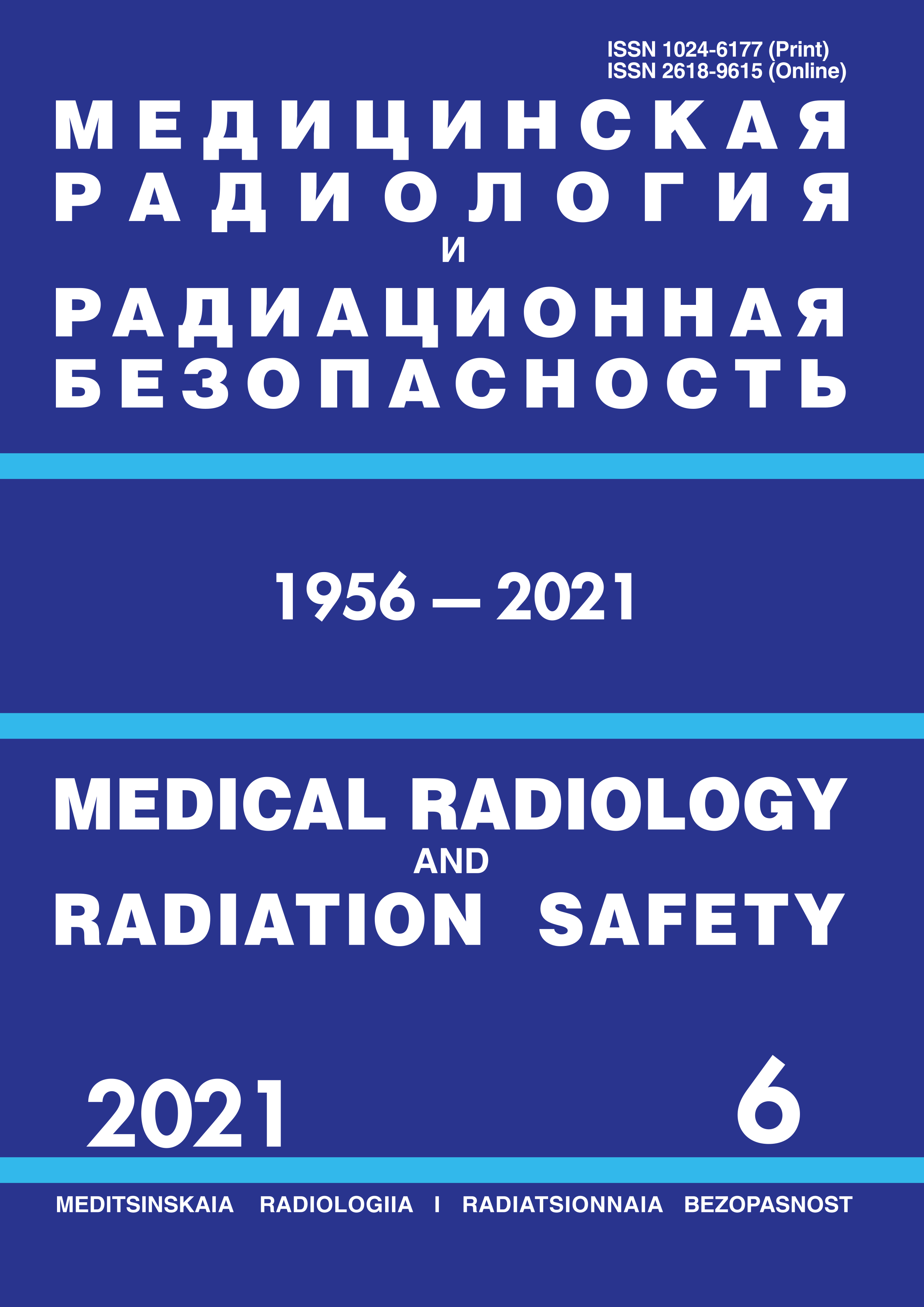Moscow, Russian Federation
Russian Federation
Russian Federation
Moscow, Russian Federation
Russian Federation
Russian Federation
Moscow, Russian Federation
CSCSTI 76.33
CSCSTI 76.03
Russian Classification of Professions by Education 31.06.2001
Russian Classification of Professions by Education 31.08.08
Russian Classification of Professions by Education 32.08.12
Russian Classification of Professions by Education 14.04.02
Russian Library and Bibliographic Classification 534
Russian Library and Bibliographic Classification 51
Russian Trade and Bibliographic Classification 5712
Russian Trade and Bibliographic Classification 5734
Russian Trade and Bibliographic Classification 6212
Russian Trade and Bibliographic Classification 5708
Purpose: Clinical and psychophysiological assessment of the adaptation of a patient who suffered from acute radiation sickness of moderate severity after the Chernobyl accident and acute leukemia, which began 30 years after the transferred ARS. Material and methods: A clinical and psychophysiological examination of a patient who suffered from acute radiation sickness of moderate severity after the Chernobyl accident and acute leukemia that occurred 30 years after the Chernobyl accident was carried out. The object of the study was the patient D.R.I., born in 1950, deputy. Head of the Chernobyl NPP workshop, participant in the liquidation of the consequences of the 1986 Chernobyl accident. On April 26, 1986, during an emergency, he underwent relatively uniform beta-gamma radiation with the development of ARS II (moderate) severity. Within 3.5 hours after the accident was in the premises of the Chernobyl nuclear power plant. In the structure of ARS, bone marrow syndrome of the second degree and oropharyngeal syndrome of the first degree of severity were observed. The radiation dose, according to a cytogenetic study, was 3.4 Gy. A psychophysiological study was carried out using the MMPI methodology, the Cattell’s 16 Personality Factors Test, the Expert automated software and methodological complex, designed to study the personality characteristics of a person, the cognitive and intellectual characteristics of a person, the Raven’s Progressive Matrices, simple and complex sensorimotor reactions and reactions to a moving object, 15 (2001) and 30 years (2016) after the Chernobyl radiation accident. Results: The clinical and psychophysiological assessment of the personality and the actual mental state made it possible to determine the demonstrative-hypochondriacal type of disturbance in the psychophysiological adaptation with the tendency for the anxiety-depressive behavior of the patient to progress to a state of increasing depression, more pronounced in dynamics. Conclusion: The psychophysiological assessment of the personality and current mental state of the patient who had ARS, moderate and, 30 years after the Chernobyl accident, acute leukemia showed a demonstrative-hypochondria type of adaptation disorder, as a variant of a disharmonious combination of hypochondria, anxiety-depressive and demonstrative tendencies with a predominance of demonstrativeness (the first, second and third scale of the MMPI methodology) with a significant decrease on the ninth scale in the form of an increase in depression in dynamics. The prevalence of demonstrativeness over growing depression in a person with high intellect, good figurative and logical thinking, and a lack of sensorimotor inhibition is a manifestation of optimism and resistance to a serious illness.
acute radiation sickness, ionizing radiation, asthenia, depression, adaptation
1. Vorob'ev A.I., Domracheva E.V. Radiacionno-inducirovannye leykozy // Problemy gematologii i perelivaniya krovi. 2000. № 4. S. 5-15.
2. Gol'dberg E.D. Leykozy i radiaciya. Tomsk: Izd. Tomskogo universiteta, 1963. 72 s.
3. Izuchenie posledstviy yadernyh vzryvov / Pod red. Burnazyana A.I., Gus'kovoy A.K., per. s angl. M.: Medicina, 1964. 480 s.
4. Suvorova L.A., Galstyan I.A., Nadezhina N.M., Nugis V.Yu. Onkogematologicheskie zabolevaniya u perenesshih ostruyu luchevuyu bolezn' // Med. radiol. i radiac. bezopasnost'. 2008. T.53, № 5. S. 26-34.
5. Ichimaru M., Ishimaru T.A. Review of Thirty Years Study of Hiroshima and Nagasaki Atomic Bomb Survivors // J. Radiat. Res. 1975:89-96.
6. Pierce D.A., Shimizu Y., Preston D.L., et al. Studies of the Mortality of Atomic Bomb Survivors. Rep. 12, Part 1. Cancer: 1950-1990 // J. Radiat. Res. 1996. V.146, No. 1. P. 1-27.
7. Preston D.L., Mabuchi K., Kusumi S., et al. Leukemia Incidence in the Atomic Bomb Survivor Life Span Study, 1950-87 // Proceed. of Intern. Conference on Radiation Effects and Protection; March 18-20. Japan Atomic Energy Research. Inst., 1992. P. 103-107.
8. Ishimaru M., Okhkita T., Ishimaru T. Leukemia, Multiple Myeloma and Malignant Lymphoma // GANN Monograph on Cancer Res. 1986. No. 32. P. 113-127.
9. Berezin F.B., Miroshnikov M.P., Sokolova E.D. Metodika mnogostoronnego issledovaniya lichnosti. Struktura, osnovy interpretacii, nekotorye oblasti primeneniya. Predisl. Barlas T. 3-e izd., ispr. i dop. M.: Izdatel'stvo «BEREZIN FELIKS BORISOVICh», 2011. 320 s.
10. Sokolova E.D., Kalachev V.F., Dolnykova A.A. Klinicheskie aspekty narusheniy psihicheskoy adaptacii. Psihicheskaya adaptaciya cheloveka v usloviyah Severa. Vladivostok, 1980. S. 77-96.
11. Korolenko C.P. Psihofiziologiya cheloveka v ekstremal'nyh usloviyah. L.: Medicina, 1978. S. 150.





